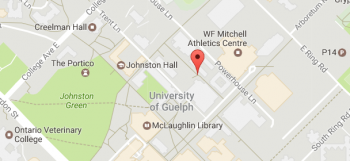Meet Martha Aboye (left) & Natasha Parris (right)

About Martha & Natasha:
Martha Aboye is a third year Bachelor of Commerce, Management Co-op student at the University of Guelph who has worked as Production Coordinator at Maple Lodge Farms under the supervision of Senior Plant Manager, Natasha Parris. In her work, Martha would check and file production reports for accuracy or completion, create reoccurring Required Results presentations and assist in facilitating these meetings, as well as create work instructions that will be used for training purposes. Martha and Natasha worked together to create safe spaces at work for women in leadership and folks identifying as Black, Indigenous, and people of colour, while honouring and integrating their own intersectionality. Martha and Natasha discuss their roles, what their working relationship is like, the EDI (Equity, Diversity, and Inclusion) practices they have integrated at work, and their advice for women and Black folks in their industry.
Tell us a bit more about what you do in your roles. What is your relationship like as student and supervisor?
“We have a great working relationship and are very communicative. We touch base daily to give each other updates about projects, tasks, meetings etc. and to ensure we are both fulfilling each other’s needs.”
“We have great mutual respect and actively listen to one another. I always feel that Natasha listens to my questions or concerns and takes my suggestions or opinions into consideration.”
“We also have a mentor and mentee dynamic. I’ve learned many things from Natasha and there are several skills she has taught me. Observing how she leads our team each day whether that be managing our employees, hosting our daily meetings or leading our R2 presentations has allowed me to gain a new set of knowledge.”
How does the work you do in your job impact your day-to-day life, or vice versa?
“The meaningful connections I have made with other employees and the ability to make contributions to our work environment have been rewarding in a way that no other job has been. At the end of each day, I feel very content and fulfilled by the work I do.”
“It has also added a new structure to my day. With school being online for so long, every day was different. When my work got completed was decided by solely me. Now, I am in an environment where there are certain day-to-day tasks I need to complete and people relying/depending on me to get that work done. This has created more structure to my everyday work and a certain flow to my day.”
What types of EDI practices are you integrating into your workplace?
“Here at Maple Lodge Farms, we strive for a diverse workforce that makes every employee feel comfortable coming to work. To do this, we recognize everyone as a unique person. We embrace all races, ethnicities, religions and pronouns, seeing and recognizing each person as they wish to be. This goes for all employees, whether that be senior management straight through to associates on the production floor.”
“In addition, we translate into our most recognized languages (English, Mandarin, Punjabi). We also provide training in these languages. In addition, when writing our work instructions, we always keep in mind our audience. We practice keeping the writing and instructions simple, concise, and free of complex vocabulary so it’s easy to understand by a variety of audiences (for example, those whose first language is not English).”
What do you hope the impact of these practices will be or have been?
“The hope is that employees will feel comfortable coming to work and will be able to effectively do their jobs because they feel they are in an inclusive work environment where people feel seen - because representation matters."
What is your advice to other folks who identify as a woman and/or Black, who are seeking roles of leadership and/or a career in your industry?
N.P.: “My advice is to seek mentorship. As a Black woman in a leadership role, I thrived on mentorship and in turn see its value. I want to reciprocate and provide mentorship to others in the community. It is essential to help guide others to levels of success. The best person to advocate for you is yourself so do not be afraid to ask for help. There are leaders like me (Natasha) that would love to help and support.”
M.A.: “My advice is to not let the obstacles that may face you in your career discourage you. Whether you are a woman and/or a Person of Colour, there may be biases or assumptions that confront you or people who will underestimate you. But as a woman and/or a Person of Colour, you have to realize that you deserve to be where you are, and you have the knowledge, insight and experiences that others do not.”
Martha, what is the most valuable thing you've learned in this role that you will take with you to your next job?
“I believe l have learned the importance of asking for help. I feel like in the past it has been difficult for me to ask for help when I need it because I feel like asking for assistance or asking too many questions adds to other people’s workload. I have learned over time that it is much more beneficial for me and the business to reach out when I do not understand something because there are so many experts around me that have specific knowledge and skills that can make my work better. I also realized that people are more than happy to help. Everyone here at Maple Lodge Farms has been so kind and supportive. I been encouraged since day one to ask the questions I want and ask for help whenever needed.”


